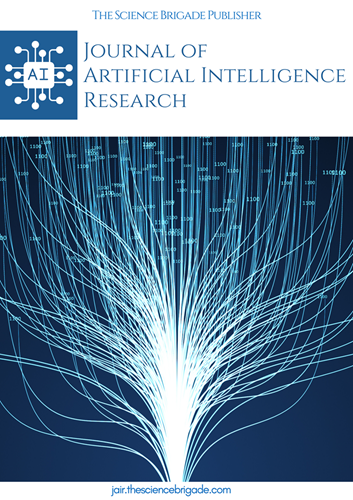AI-Driven Decision Support Systems for Precision Medicine: Examining the Development and Implementation of AI-Driven Decision Support Systems in Precision Medicine
Keywords:
Precision medicine, AI-driven decision support systems, clinical decision-making, machine learning, genomics, data integration, patient outcomes, ethical considerations, future directionsAbstract
Artificial intelligence (AI)-driven decision support systems have revolutionized the field of precision medicine by providing clinicians with tools to personalize patient care. These systems leverage machine learning algorithms to analyze complex data sets, including genomics, imaging, and clinical data, to generate actionable insights. This paper examines the development and implementation of AI-driven decision support systems in precision medicine, highlighting their significance in clinical decision-making. We discuss key advancements in AI technologies, challenges in data integration and interpretation, and the impact of AI on improving patient outcomes. Additionally, we explore ethical considerations and future directions for AI-driven decision support systems in precision medicine.
References
Pargaonkar, Shravan. "A Review of Software Quality Models: A Comprehensive Analysis." Journal of Science & Technology 1.1 (2020): 40-53.
Cabitza F, Rasoini R, Gensini GF. Unintended Consequences of Machine Learning in Medicine. JAMA. 2017 Nov 14;318(6):517-518. doi: 10.1001/jama.2017.7797.
Pargaonkar, Shravan. "Bridging the Gap: Methodological Insights from Cognitive Science for Enhanced Requirement Gathering." Journal of Science & Technology 1.1 (2020): 61-66.
Goldenberg SL, Nir G, Salcudean SE. A new era: artificial intelligence and machine learning in prostate cancer. Nat Rev Urol. 2019 Oct;16(10):391-403. doi: 10.1038/s41585-019-0226-2.
Pargaonkar, Shravan. "Future Directions and Concluding Remarks Navigating the Horizon of Software Quality Engineering." Journal of Science & Technology 1.1 (2020): 67-81.
Gulshan V, Peng L, Coram M, Stumpe MC, Wu D, Narayanaswamy A, Venugopalan S, Widner K, Madams T, Cuadros J, Kim R. Development and Validation of a Deep Learning Algorithm for Detection of Diabetic Retinopathy in Retinal Fundus Photographs. JAMA. 2016 Dec 13;316(22):2402-2410. doi: 10.1001/jama.2016.17216.
Pargaonkar, S. (2020). A Review of Software Quality Models: A Comprehensive Analysis. Journal of Science & Technology, 1(1), 40-53.
Laï MC, Brian M, Mamzer MF, Peretti-Watel P, Cornu C, Aho-Glélé LS, Auquier P. Efficacy of a computerized system for drug dosage in patients with renal failure. BMC Nephrol. 2018 Jul 3;19(1):155. doi: 10.1186/s12882-018-0943-2.
Pargaonkar, S. (2020). Bridging the Gap: Methodological Insights from Cognitive Science for Enhanced Requirement Gathering. Journal of Science & Technology, 1(1), 61-66.
Long E, Lin H, Liu Z, Wu X, Wang L, Jiang J, An Y, Xu J, Lin Z, Li X, Chen J. An artificial intelligence platform for the multihospital collaborative management of congenital cataracts. Nat Biomed Eng. 2017 May;1(5):1-11. doi: 10.1038/s41551-017-0072-3.
Pargaonkar, S. (2020). Future Directions and Concluding Remarks Navigating the Horizon of Software Quality Engineering. Journal of Science & Technology, 1(1), 67-81.
Park SH, Han K. Methodologic Guide for Evaluating Clinical Performance and Effect of Artificial Intelligence Technology for Medical Diagnosis and Prediction. Radiology. 2018 Jul;286(3):800-809. doi: 10.1148/radiol.2018173052.
Downloads
Published
How to Cite
Issue
Section
License

This work is licensed under a Creative Commons Attribution-NonCommercial-ShareAlike 4.0 International License.
License Terms
Ownership and Licensing:
Authors of this research paper submitted to the journal owned and operated by The Science Brigade Group retain the copyright of their work while granting the journal certain rights. Authors maintain ownership of the copyright and have granted the journal a right of first publication. Simultaneously, authors agreed to license their research papers under the Creative Commons Attribution-NonCommercial-ShareAlike 4.0 International (CC BY-NC-SA 4.0) License.
License Permissions:
Under the CC BY-NC-SA 4.0 License, others are permitted to share and adapt the work, as long as proper attribution is given to the authors and acknowledgement is made of the initial publication in the Journal. This license allows for the broad dissemination and utilization of research papers.
Additional Distribution Arrangements:
Authors are free to enter into separate contractual arrangements for the non-exclusive distribution of the journal's published version of the work. This may include posting the work to institutional repositories, publishing it in journals or books, or other forms of dissemination. In such cases, authors are requested to acknowledge the initial publication of the work in this Journal.
Online Posting:
Authors are encouraged to share their work online, including in institutional repositories, disciplinary repositories, or on their personal websites. This permission applies both prior to and during the submission process to the Journal. Online sharing enhances the visibility and accessibility of the research papers.
Responsibility and Liability:
Authors are responsible for ensuring that their research papers do not infringe upon the copyright, privacy, or other rights of any third party. The Science Brigade Publishers disclaim any liability or responsibility for any copyright infringement or violation of third-party rights in the research papers.




